All Stories
-
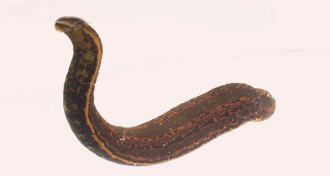 Health & Medicine
Health & MedicineWhat leech gut bacteria can tell us about drug resistance
A bacteria found in leeches becomes drug resistant after only a small exposure to common antibiotics.
-
 Physics
PhysicsThe Planck satellite’s picture of the infant universe gets its last tweaks
Scientists have released the last big result from the cosmic microwave background experiment Planck.
-
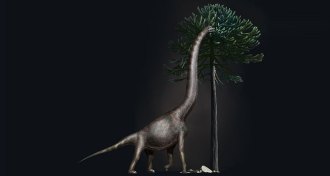 Paleontology
PaleontologyPaleontologists have ID’d the world’s biggest known dinosaur foot
Bigfoot has been found in Wyoming. It’s not a hairy, apelike creature; it’s a dinosaur.
-
 Health & Medicine
Health & MedicinePediatricians warn against chemical additives in food for kids
Common food additives found in meats, plastic packaging or metal cans may contain chemicals that harm children’s health.
-
 Tech
TechA new kind of spray is loaded with microscopic electronic sensors
For the first time, researchers have built circuits on microscopic chips that can be mixed into an aerosol spray.
-
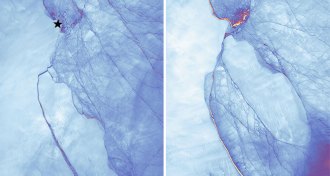 Earth
EarthThe giant iceberg that broke from Antarctica’s Larsen C ice shelf is stuck
A year ago, an iceberg calved off of the Larsen C ice shelf. The hunk of ice hasn’t moved much since, and that has scientists keeping an eye on it.
-
 Genetics
Genetics50 years ago, scientists took baby steps toward selecting sex
In 1968, scientists figured out how to determine the sex of rabbit embryos.
-
 Earth
EarthYou’re living in a new geologic age. It’s called the Meghalayan
The newly defined Meghalayan Age began at the same time as a global, climate-driven event that led to human upheavals.
By Beth Geiger -
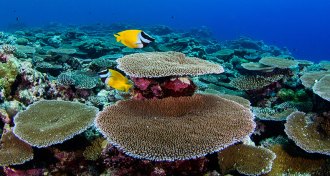 Oceans
OceansShallow reef species may not find refuge in deeper water habitats
Coral reefs in deep-water ecosystems may not make good homes for species from damaged shallow reefs.
-
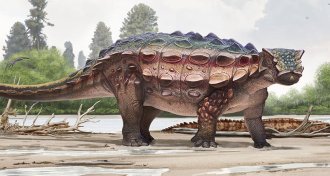 Animals
AnimalsA new ankylosaur found in Utah had a surprisingly bumpy head
The spiky, fossilized skull of a newly discovered dinosaur species may be a road map to its ancestors’ journey to North America.
-
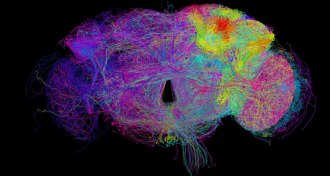 Neuroscience
NeuroscienceThis colorful web is the most complete look yet at a fruit fly’s brain cells
Scientists compiled 21 million images to craft the highest-resolution view yet of the fruit fly brain.
-
 Particle Physics
Particle PhysicsOne particle’s trek suggests that ‘spacetime foam’ doesn’t slow neutrinos
Neutrinos and light travel at essentially the same speed, as predicted.